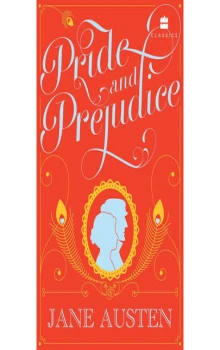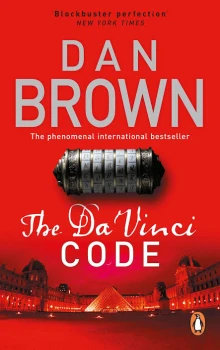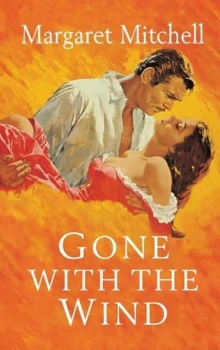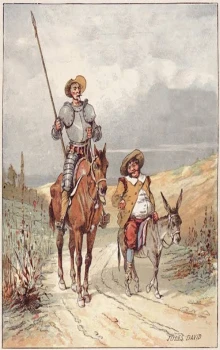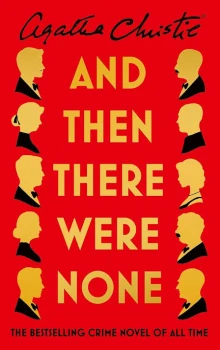Elizabeth was sitting by herself the next morning, and writing to Jane while
Mrs. Collins and Maria were gone on business into the village, when she
was startled by a ring at the door, the certain signal of a visitor. As she had
heard no carriage, she thought it not unlikely to be Lady Catherine, and un-
der that apprehension was putting away her half-finished letter that she
might escape all impertinent questions, when the door opened, and, to her
very great surprise, Mr. Darcy, and Mr. Darcy only, entered the room.
He seemed astonished too on finding her alone, and apologised for his
intrusion by letting her know that he had understood all the ladies were to
be within.
They then sat down, and when her inquiries after Rosings were made,
seemed in danger of sinking into total silence. It was absolutely necessary,
therefore, to think of something, and in this emergence
recollecting when she had seen him last in Hertfordshire, and feeling curi-
ous to know what he would say on the subject of their hasty departure, she
observed:
"How very suddenly you all quitted Netherfield last November, Mr. Dar-
cy! It must have been a most agreeable surprise to Mr. Bingley to see you
all after him so soon; for, if I recollect right, he went but the day before. He
and his sisters were well, I hope, when you left London?"
"Perfectly so, I thank you."
She found that she was to receive no other answer, and, after a short
pause added:
"I think I have understood that Mr. Bingley has not much idea of ever re-
turning to Netherfield again?"
"I have never heard him say so; but it is probable that he may spend very
little of his time there in the future. He has many friends, and is at a time of
life when friends and engagements are continually increasing."
"If he means to be but little at Netherfield, it would be better for the
neighbourhood that he should give up the place entirely, for then we might
possibly get a settled family there. But, perhaps, Mr. Bingley did not take
the house so much for the convenience of the neighbourhood as for his
own, and we must expect him to keep it or quit it on the same principle."
"I should not be surprised," said Darcy, "if he were to give it up as soon
as any eligible purchase offers."
Elizabeth made no answer. She was afraid of talking longer of his friend;
and, having nothing else to say, was now determined to leave the trouble of
finding a subject to him.
He took the hint, and soon began with, "This seems a very comfortable
house. Lady Catherine, I believe, did a great deal to it when Mr. Collins first
came to Hunsford."
"I believe she did—and I am sure she could not have bestowed her kind-
ness on a more grateful object."
"Mr. Collins appears to be very fortunate in his choice of a wife."
"Yes, indeed, his friends may well rejoice in his having met with one of
the very few sensible women who would have accepted him, or have made
him happy if they had. My friend has an excellent understanding—though I
am not certain that I consider her marrying Mr. Collins as the wisest thing
she ever did. She seems perfectly happy, however, and in a prudential light
it is certainly a very good match for her."
"It must be very agreeable for her to be settled within so easy a distance
of her own family and friends."
"An easy distance, do you call it? It is nearly fifty miles."
"And what is fifty miles of good road? Little more than half a day's jour-
ney. Yes, I call it a very easy distance."
"I should never have considered the distance as one of the advantages of
the match," cried Elizabeth. "I should never have said Mrs. Collins was set-
tled near her family."
"It is a proof of your own attachment to Hertfordshire. Anything beyond
the very neighbourhood of Longbourn, I suppose, would appear far."
As he spoke there was a sort of smile which Elizabeth fancied she under-
stood; he must be supposing her to be thinking of Jane and Netherfield, and
she blushed as she answered:
"I do not mean to say that a woman may not be settled too near her fami-
ly. The far and the near must be relative, and depend on many varying cir-
cumstances. Where there is fortune to make the expenses of travelling
unimportant, distance becomes no evil. But that is not the case here. Mr.
and Mrs. Collins have a comfortable income, but not such a one as will al-
low of frequent journeys—and I am persuaded my friend would not call
herself near her family under less than half the present distance."
Mr. Darcy drew his chair a little towards her, and said, "You cannot have
a right to such very strong local attachment. You cannot have been always at
Longbourn."
Elizabeth looked surprised. The gentleman experienced some change of
feeling; he drew back his chair, took a newspaper from the table, and glanc-
ing over it, said, in a colder voice:
"Are you pleased with Kent?"
A short dialogue on the subject of the country ensued, on either side calm
and concise—and soon put an end to by the entrance of Charlotte and her
sister, just returned from her walk. The tete-a-tete surprised them. Mr. Dar-
cy related the mistake which had occasioned his intruding on Miss Bennet,
and after sitting a few minutes longer without saying much to anybody,
went away.
"What can be the meaning of this?" said Charlotte, as soon as he was
gone. "My dear, Eliza, he must be in love with you, or he would never have
called us in this familiar way."
But when Elizabeth told of his silence; it did not seem very likely, even
to Charlotte's wishes, to be the case; and after various conjectures, they
could at last only suppose his visit to proceed from the difficulty of finding
anything to do, which was the more probable from the time of year. All
field sports were over. Within doors there was Lady Catherine, books, and a
billiard-table, but gentlemen cannot always be within doors; and in the
nearness of the Parsonage, or the pleasantness of the walk to it, or of the
people who lived in it, the two cousins found a temptation from this period
of walking thither almost every day. They called at various times of the
morning, sometimes separately, sometimes together, and now and then ac-
companied by their aunt. It was plain to them all that Colonel Fitzwilliam
came because he had pleasure in their society, a persuasion which of course
recommended him still more; and Elizabeth was reminded by her own satis-
faction in being with him, as well as by his evident admiration of her, of her
former favourite George Wickham; and though, in comparing them, she
saw there was less captivating softness in Colonel Fitzwilliam's manners,
she believed he might have the best informed mind.
But why Mr. Darcy came so often to the Parsonage, it was more difficult
to understand. It could not be for society, as he frequently sat there ten min-
utes together without opening his lips; and when he did speak, it seemed the
effect of necessity rather than of choice—a sacrifice to propriety, not a plea-
sure to himself. He seldom appeared really animated. Mrs. Collins knew not
what to make of him. Colonel Fitzwilliam's occasionally laughing at his stu-
pidity, proved that he was generally different, which her own knowledge of
him could not have told her; and as she would liked to have believed this
change the effect of love, and the object of that love her friend Eliza, she set
herself seriously to work to find it out. She watched him whenever they
were at Rosings, and whenever he came to Hunsford; but without much
success. He certainly looked at her friend a great deal, but the expression of
that look was disputable. It was an earnest, steadfast gaze, but she often
doubted whether there were much admiration in it, and sometimes it
seemed nothing but absence of mind.
She had once or twice suggested to Elizabeth the possibility of his being
partial to her, but Elizabeth always laughed at the idea; and Mrs. Collins did
not think it right to press the subject, from the danger of raising expecta-
tions which might only end in disappointment; for in her opinion it admitted
not of a doubt, that all her friend's dislike would vanish, if she could sup-
pose him to be in her power.
In her kind schemes for Elizabeth, she sometimes planned her marrying
Colonel Fitzwilliam. He was beyond comparison the most pleasant man; he
certainly admired her, and his situation in life was most eligible; but, to
counterbalance these advantages, Mr. Darcy had considerable patronage in
the church, and his cousin could have none at all.
